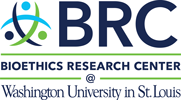Title: Property, Privacy, and Public Health Obligations at Conflict in AIDS Research?
Author: Adrienne Carpenter
Description: Blood samples are used for an HIV surveillance program without consent.
Keyword(s): undervalued/stigmatized group or condition, privacy/confidentiality, anonymity, future research on stored samples, public health research, epidemiology research
Based On: (Brody, 1998)
Case: In an attempt to accurately predict the future prevalence of AIDS cases across different populations, the CDC conducted unlinked anonymous screening of HIV infection nationwide. The CDC did not obtain individual informed consent from donors because the donors’ blood was drawn for other purposes, and would have been discarded. Though identifying information was destroyed, demographic information was retained. The donors were not aware that their samples would be used by the CDC for HIV surveillance.
- What ethical issues does this practice raise?
- Is it permissible to use samples collected for other purposes in this type of research? Would your answer be different if this “proactive” surveillance was not based on previously stored samples, but rather just a tally of HIV+ results reported to individual state departments of health (which oftentimes do include identifiable data)?
- Is surveillance associated with other diseases (like the elaborate system of cancer registries we have) fundamentally different from tracking HIV? Should the act of tracking cancer be different from tracking HIV?
Source: Brody, B. (1998). Ethics of Biomedical Research. New York: Oxford University Press.

